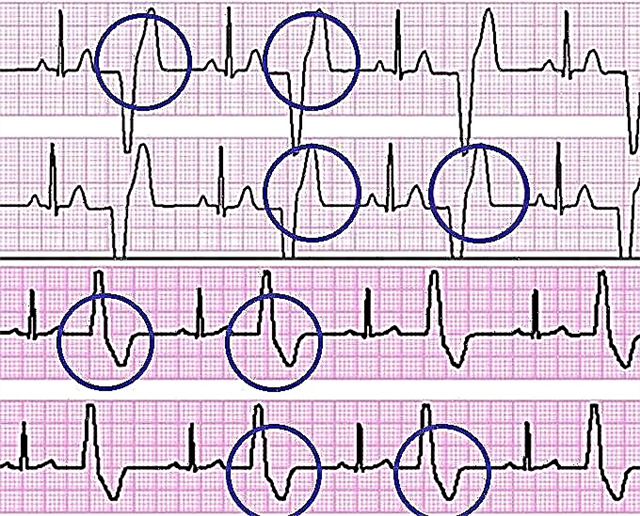"Aspirin" is the most famous drug, which is included in the list of the most important drugs of the World Health Organization. Thanks to this, in most people, the drug has earned a reputation as an effective and safe medicine for treating fever during ARVI, headache and toothache. The complex effect on organs and tissues causes a wide range of contraindications and adverse reactions of the drug. Reception of "Aspirin" is prohibited for pregnant women and children under 12 years old, women during lactation should take the drug with caution.
Briefly: drug features
Aspirin is the oldest drug in the group of non-narcotic analgesics and antipyretics. The active ingredient is Acetylsalicylic acid, which slows down (inhibits) the cyclooxygenase enzyme, which is responsible for the synthesis of prostaglandins and thromboxanes. Active molecules belong to the group of inflammatory mediators that cause pain, affect thermoregulation, and contribute to the development of edema.
The pharmacological effects of the drug are presented in the table:
| Impact | Development mechanism |
|---|---|
| Pain reliever | Due to reduced synthesis of prostaglandins |
| Antipyretic | Prevents the effect of prostaglandin E2 on the thermoregulatory center in the hypothalamus |
| Anti-inflammatory | Interferes with the release of mediators from cells |
| Antiplatelet | Reduces the secretion of thromboxanes |
When is the use of funds strictly prohibited?
The remedy affects the metabolic processes and the functioning of cells of the whole organism, which causes a wide range of restrictions on intake.
Contraindications to the use of "Aspirin":
 obstructive respiratory diseases (asthma, chronic bronchitis);
obstructive respiratory diseases (asthma, chronic bronchitis);- renal diseases (with impaired filtration function);
- liver diseases (hepatitis, cirrhosis, organ failure, portal vein hypertension)
- pathology of the stomach and duodenum (gastritis, duodenitis, gastroesophageal reflux disease, peptic ulcer);
- diabetes;
- lack of vitamin K;
- a diet low in sodium;
- hemorrhagic syndrome (with hemophilia, thrombocytopenic purpura, von Willebrand disease);
- anemia;
- dissection of the aortic aneurysm.
The drug is prohibited if there are signs of hypersensitivity to acetylsalicylic acid, auxiliary components of tablets, as well as if you are allergic to non-steroidal anti-inflammatory drugs (Paracetamol, Analgin, Ibuprofen).
Acetylsalicylic acid during breastfeeding is accompanied by the risk of unwanted effects presented in the table.
| Group of side effects | Clinical symptoms |
|---|---|
| Allergic |
|
| Dyspeptic |
|
| Anemia (decreased hemoglobin) |
|
| Liver dysfunction |
|
| Nephrotic syndrome |
|
| Neurological |
|
"Aspirin triad" is a specific syndrome that can occur during drug treatment. Clinical signs:
- attacks of bronchial asthma;
- chronic polyposis sinusitis;
- intolerance to other non-steroidal anti-inflammatory drugs (NSAIDs).
In the event of such symptoms, it is necessary to stop taking the medication and consult a specialist.
Is Acetylsalicylic Acid Allowed for Breastfeeding?
The majority of the population classifies Acetylsalicylic acid in the group of widely demanded and safe drugs for "headache and fever". However, the range of therapeutic and side effects limits the use of the drug during pregnancy and lactation due to the risk of consequences for the woman and child.
The reasons why "Aspirin" is not prescribed by women during breastfeeding:
- Penetration of the drug through the barrier into breast milk and the baby's body. Immaturity of the protective systems of the newborn, functional failure of the digestive tract (lack of enzymes) are preconditions for the development of undesirable consequences.
- Additional antigenic load. The neonatal period is characterized by the tension of the immune system under the influence of many factors of the external "foreign" environment.
- Provocation of allergic reactions and autoimmune diseases (due to inhibition of the function of blood lymphocytes): bronchial asthma, hemorrhagic diathesis, hemolytic anemia.
Acetylsalicylic acid during lactation is the cause of a dangerous complication - Reye's syndrome (or Reye's, white liver disease). The pathological condition occurs against the background of treatment with "Aspirin" fever of viral etiology. Increased permeability of the blood-brain barrier leads to cerebral edema, encephalopathy, in parallel, acute liver failure develops.
Reye's syndrome symptoms:
- convulsions (local and generalized);
- violation of consciousness (up to coma);
- pathological breathing (shallow).
- in newborns - tension and protrusion of the large fontanel, positive eye symptoms of the "setting sun".
Reye's syndrome is characterized by a high mortality rate, therefore, requires immediate hospitalization in an intensive care unit.
During the period of breastfeeding, it is not recommended to take "Nimesulide", "Analgin" (the most dangerous medication banned in many countries of the world).
In the absence of contraindications, other drugs from the NSAID group are used to lower the temperature or relieve pain:
- Ibuprofen (considered the safest drug);
- "Paracetamol" (prohibited in the first month after birth) in the form of syrup, effervescent tablets, rectal suppositories;
- Diclofenac - tablets, intramuscular injections.
To reduce the concentration of drug metabolites in breast milk, tablets are recommended to be taken immediately after feeding.
Before using the drugs, it is necessary to consult a doctor to assess individual contraindications. If there is no alternative, a single dose of Aspirin is allowed in the maximum daily dosage (no more than 1 gram).
If long-term use is necessary (coronary heart disease, rheumatological diseases), you should consider the issue of artificial feeding of the baby with special mixtures.
Conclusions
It is not recommended to use Aspirin while breastfeeding because of the high degree of penetration of active metabolites into milk. Immaturity of a newborn's immune system increases the risk of side effects. The most common are bronchospasm, allergic reactions, diseases of the digestive tract, agranulocytosis (a decrease in the number of leukocytes - immune blood cells). To combat fever, nursing mothers are recommended to use safer substitutes for acetylsalicylic acid - "Paracetamol", "Ibuprofen", "Diclofenac". Before taking medications, you need to consult a specialist.

 obstructive respiratory diseases (asthma, chronic bronchitis);
obstructive respiratory diseases (asthma, chronic bronchitis);

